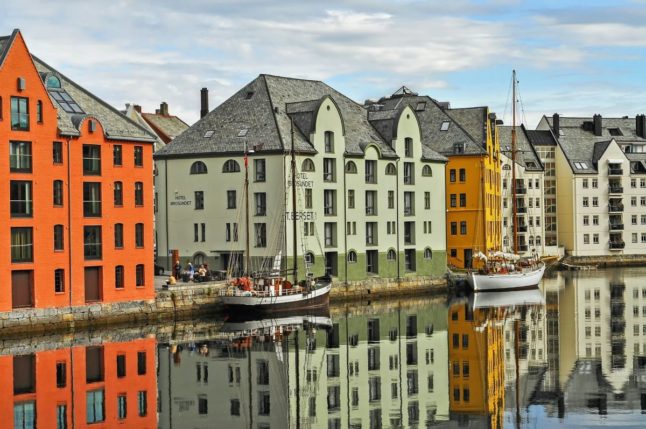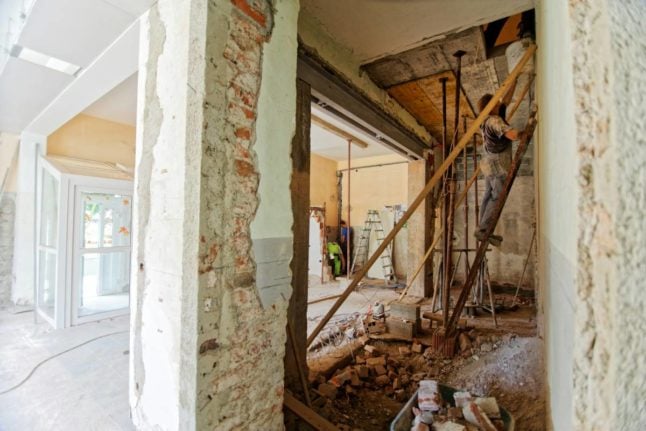Norway’s property market moves quickly, and most homes do not spend too long on the market.
Furthermore, rising property prices can make it feel like it’s constantly getting harder and harder to get on the property ladder.
However, despite rising prices and the market’s breakneck speed, it’s important not to rush into things and end up making a massive mistake.
Not sorting your paperwork
Before you are ready to start putting in offers on houses, you will need the mortgage offer from the bank. Therefore, you should fix this before really getting stuck into viewings.
Banks in Norway offer mortgages of up to 85 percent of a home’s value, with a 15 percent deposit required.
They will also stress-test your finances against interest rate raises and consider factors such as your income and any existing loans you may have. In Norway, your debt typically can’t exceed five times your income when purchasing a property.
Once you’ve got an offer, you can approach other banks to see if they will better the offer you received, and after this, you are ready to begin searching as you know what you can afford.
READ ALSO: What foreign residents in Norway need to know to get a mortgage
Not reading the small print
There is quite a lot of important small print when purchasing a house that will cost you big time if you don’t properly read it.
All homes in Norway generally come with an in-depth report on the property’s condition, and in most cases, the buyer is responsible for uncovering flaws in the property.
During a condition report, an appraiser will check for deterioration on the property, assess the materials used in the construction and thoroughly evaluate the home for any areas where maintenance will be required in the immediate or near future.
Pay particular attention to things like the electrics, plumbing, kitchen, bathroom, and moisture damage, as repairs to these can be incredibly expensive.
Then there’s the information about the housing association to which many, but not all, homes in Norway belong.
It is crucial to check the association’s monthly costs and shared debt, as well as any future plans for major renovations that could increase those costs.
Being able to tell a well-run housing association with healthy finances from one in a more perilous position can make or break whether a home is for you.
READ ALSO: How to analyse a Norwegian housing association’s finances
Showing the realtor your proof of funds
Banks issue proof of funds certificates (Norwegian: finansieringsbevis). However, you should never show this to the realtor selling the property.
This is because it will reveal how much money you have available, and as the realtor is working for and being paid by the seller, they will do what they can to ensure a higher price for the seller.
Bidding on homes that you aren’t quite sure about
Once you have your mortgage offer or proof of financing, you can put in offers on homes.
Be warned, though. You shouldn’t just put in bids to be involved and get a feel for the market.
You also shouldn’t put in offers on “maybes” either, as all bids in Norway are legally binding.
This means that you could end up having to buy a property you put a speculative bid on if it is accepted by the owner.
Agents do their utmost to prevent people from bidding on more than one home at a time, but some offers can slip through the cracks, so you also need to make sure you only bid on one property at a time.
You also need to make sure you don’t offer more than you have, as you will be expected to follow through with the purchase.
It is incredibly difficult to back out of a home purchase in Norway, and if you do manage to wriggle out of the process, it will likely end up costing you quite a lot of money.
Not having money for the other costs
Given that property is typically the largest purchase of most people’s lives, it’s easy to lose track of the smaller costs.
One of these is stamp duty (dokumentavgift). When buying a freehold property in Norway, you will need to pay 2.5 percent of the purchase to the state in stamp duty.
Banks in Norway don’t offer financing for stamp duty. So it’s worth remembering that you will need to pay this cost.
One advantage of buying into a housing association is that you will not need to pay stamp duty.
READ MORE: The hidden extra costs when buying property in Norway



 Please whitelist us to continue reading.
Please whitelist us to continue reading.
Member comments